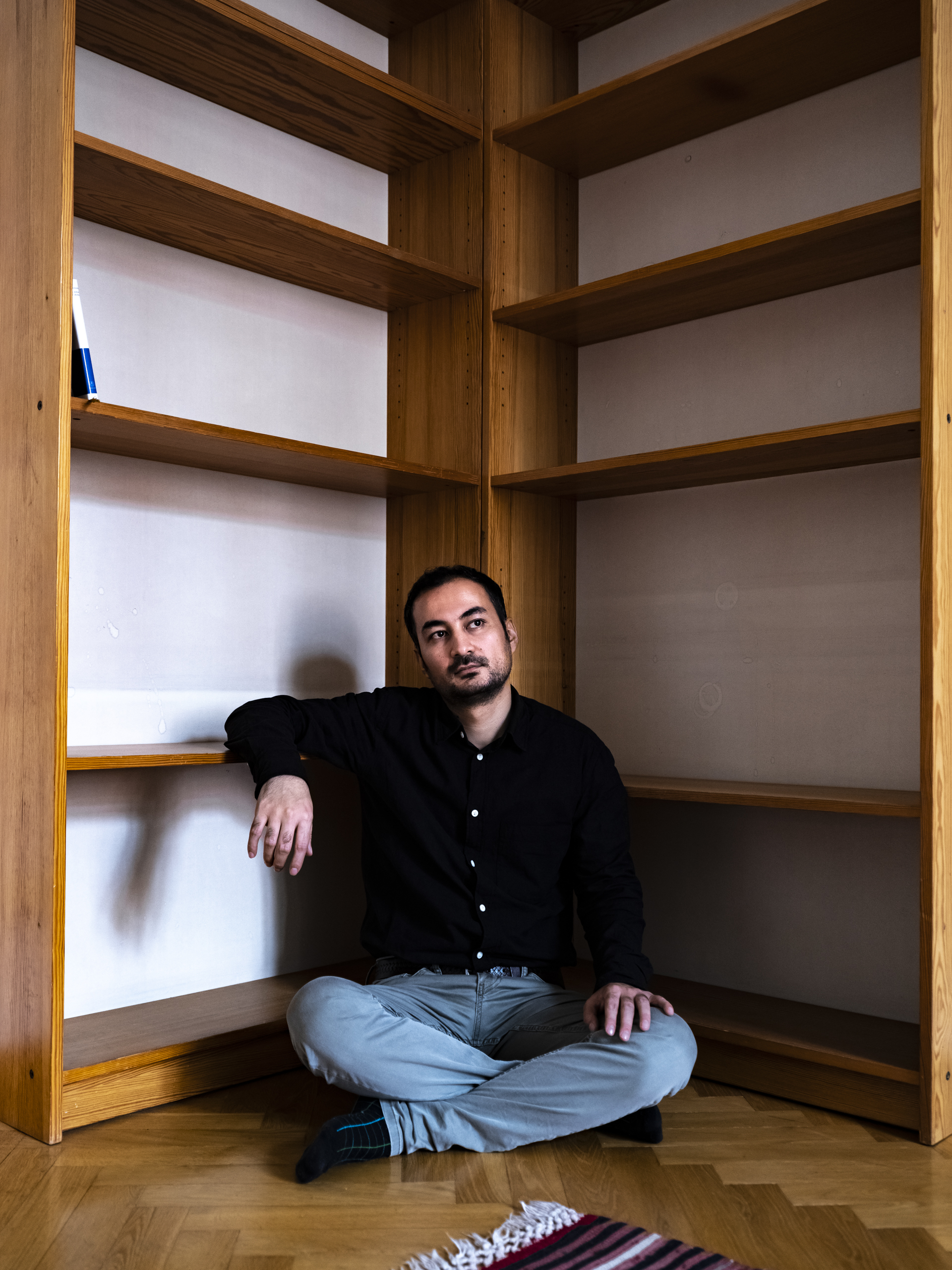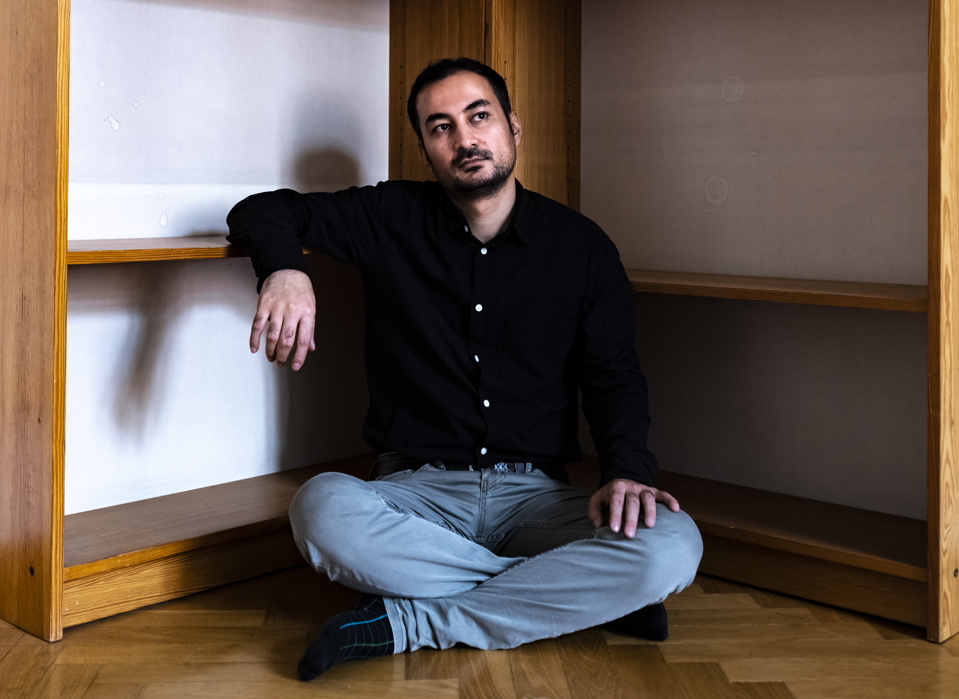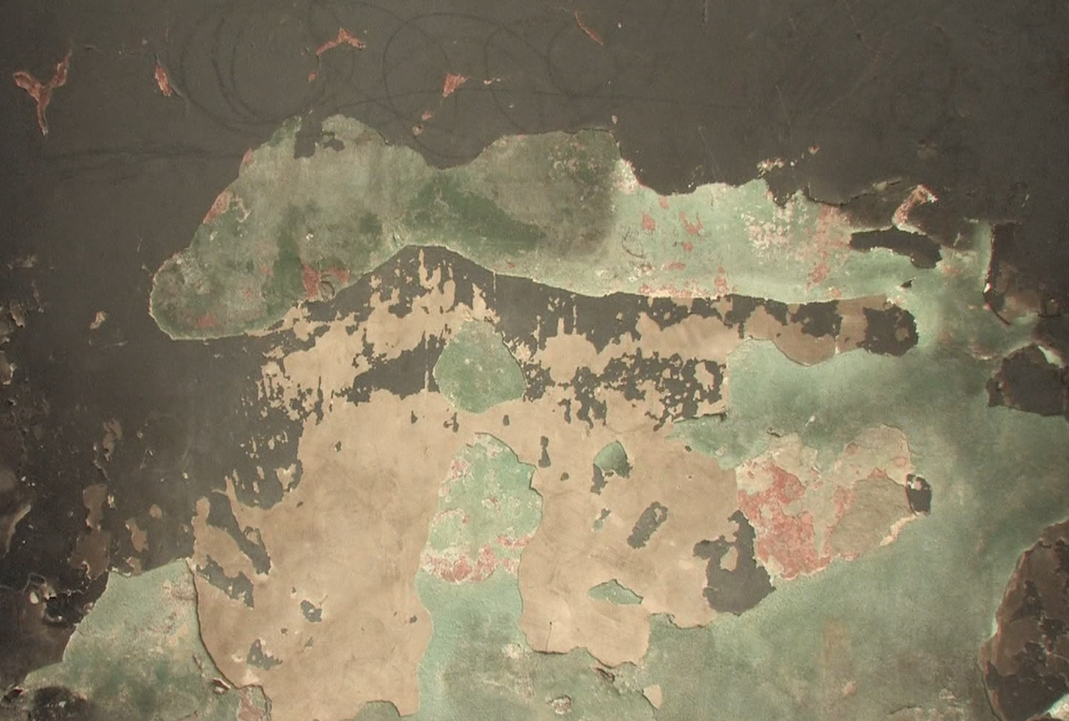Afghanistan, Literature, 2021
Taqi
Akhlaqi

At some point it happens to everyone living in Kabul for the first time. A blast that almost shatters eardrums and reverberates in the pit of your stomach. What to do if a car bomb goes off nearby: run away, throw yourself to the ground? Let’s hear what Taqi Akhlaqi writes about his initiation to terror. “This sound was so loud, new, and different it made me want to discover an unknown continent.”
A peculiar reflex. It captures something of the contours of the Afghan writer, born in 1986, of whom there is only a small collection of stories available in German. But Aus heiterem Himmel (2018) already gives an idea of the spectrum that Akhlaqi’s writing covers. His texts tell of flight, exile, and brute force, but always present these aspects from a point of view that shatters the pure shock effect and reveals the—to us—unknown continent of reality behind this where such fates play out. The author also lends his voice to a child and even animals; and, unusually enough, repeatedly builds bridges between Afghanistan and Germany.
Die Handschuhe, for example, written in Kabul in September 2015, can be read as an echo of a message that was in its own way “so loud, new, and different” that the world learned to look at Germany through new eyes. It was called “welcoming culture” and was too good to be true in the long run. For Taqi Akhlaqi, this is no reason to turn away from a culture where he has found a second spiritual home—and so, at the end of the final story in the collection, a parrot from Kabul soars into the night sky over Frankfurt and recites Nietzsche. There is also a dose of self-irony behind this: Akhlaqi learned German specifically so that he could read Thus Spoke Zarathustra in the original.
His first encounter with Germany, however, dates back further. Three volumes of fairy tales by the Brothers Grimm opened up a new world for him as a ten-year-old in which he could let his imagination wander; later authors such as Hesse, Brecht, and Stefan Zweig, Remarque, Böll and Grass joined the fold. Works by Nietzsche and Freud, Viktor Frankl, and Hannah Arendt rounded out the German-speaking cosmos, surrounded by works of Russian, French, Anglo-Saxon writers and other representatives of world literature.
This intellectual path was anything but predestined. Taqi Akhlaqi was born into a strictly religious family, and, as the eldest son, he should have become a mullah in accordance with tradition. With difficulty—and only after a five-year religious course—he prevailed against expectation. “I think it was my luck that we were so poor,” he writes. “In the end, I was able to convince my father that I could support the family better if I studied English and literature.” This was not an empty promise. Four other siblings were able to complete their studies, not least thanks to his help.
Nevertheless, the family keeps its distance from his writing. “The less they know about it the safer we are all,” Akhlaqi comments, and he speaks from experience: in 2012, after his second collection of short stories was released in Kabul, he received threatening phone calls. Since then he has largely withdrawn from the public eye in his home country; but this does not detract from his role as a shrewd witness of the times.
Text: Angela Schader
Translation: Erik Smith
Past
-

Versteh einer die Deutschen
Taqi Akhlaqi2024, Roman

Vier Monate in Deutschland. Ein Abenteuer
The Germany that Taqi Akhlaqi reveals is so wondrous and full of surprises that at the end of his scholarship stay he returns to Afghanistan to reflect on what he has seen and experienced. He does this so thoroughly, so ruthlessly self-critically and with so much humor that anyone who reads his observations is inspired to question their own customs, everyday rituals and ways of thinking, to “alienate themselves”, as the author puts it, and the to discover your own society with new eyes.
Translated from Persian by Jutta Himmelreich
The translation was funded by the DAAD Artists-in-Berlin Program.
Publisher: Sujet Verlag, Bremen
ISBN 978-3-96202-135-1
Order: mohit@sujet-verlag.de




